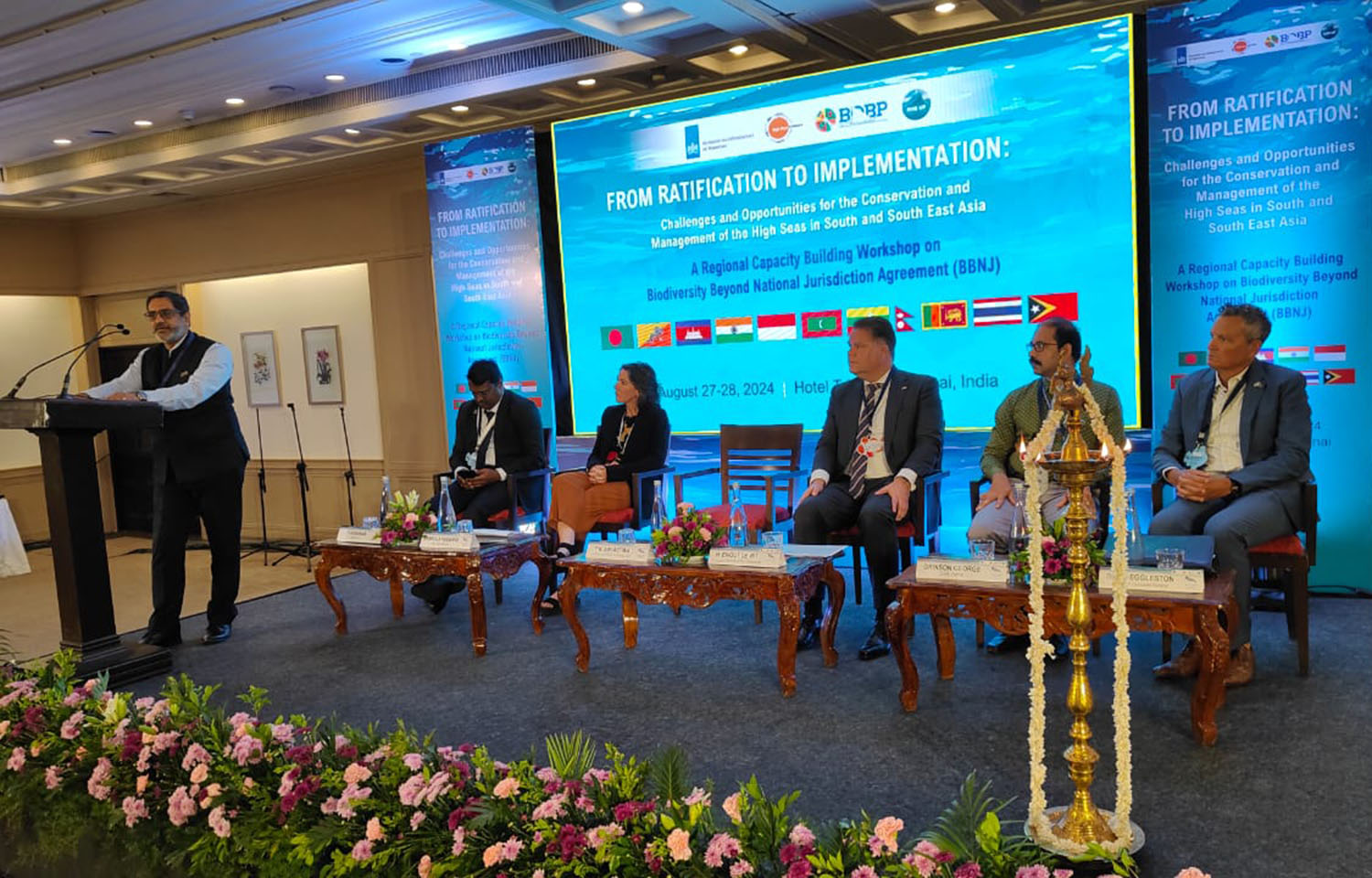The Bay of Bengal Program Inter-Governmental Organization (BOBP-IGO) – a regional fishery advisory body with member states including Bangladesh, India, Maldives, and Sri Lanka – has made progress in getting more Southeast Asian countries to ratify the Biodiversity Beyond National Jurisdiction Agreement, also known as the High Seas Treaty.
The High Seas Treaty is the result of nearly two decades of U.N.-facilitated talks that culminated in a March 2023 deal that seeks to place 30 percent of the world’s oceans into protected areas. As of 29 August, the treaty needed 52 more ratifications to come into effect; so far, 91 nations have signed the treaty signaling intention to ratify. The latest country to ratify the treaty, Cuba, did so on 28 June.
BOBP-IGO, which was established in 2003, is working to see more Southeast Asian countries formulate the national-level legislation needed to implement the treaty. The BOBP-IGO recently organized a two-day workshop in Chennai, India, to bring together officials from a number of Southeast Asian countries, including Bangladesh, India, Maldives, Sri Lanka, Nepal, Cambodia, Thailand, Indonesia, Bhutan, Myanmar, and Timor-Leste.
According to BOBP-IGO, during the workshop, a panel of experts from member nations – including diplomats, policymakers, and marine scientists – recognized that one of the keys to implementing the High Seas Treaty will be implementing proactive legislation at a national level to bring the agreement into force.
“Other recommendations of the workshop underline the urgency of addressing the critical challenges facing the high seas and the crucial role that South and Southeast Asian countries can play in preserving marine ecosystems,” BOBP-IGO said in a release. “The meeting observed that the High Seas Treaty has the potential to significantly enhance ocean conservation efforts, thereby helping to mitigate climate change.”
The workshop also led to India stating it intended to sign the High Seas Treaty at the next U.N. General Assembly meeting in September. PK Srivastava, an advisor to the Union Ministry of Earth Sciences, said during the two-day workshop the country is set to sign the treaty and that the Ministry will establish the institutional mechanisms necessary.
“This authority will deal with the necessary regulations, studies, and other activities related to the treaty,” Srivastava said at the meeting.
Srivastava said that signing the treaty will not be without its challenges and that developing priorities, resource sharing, research and development, and capacity building are all immediate tasks that need to be carried out.
“There is a strong need to leverage regional partnership between the South and Southeast Asian countries for capacity building in this direction,” he said.








